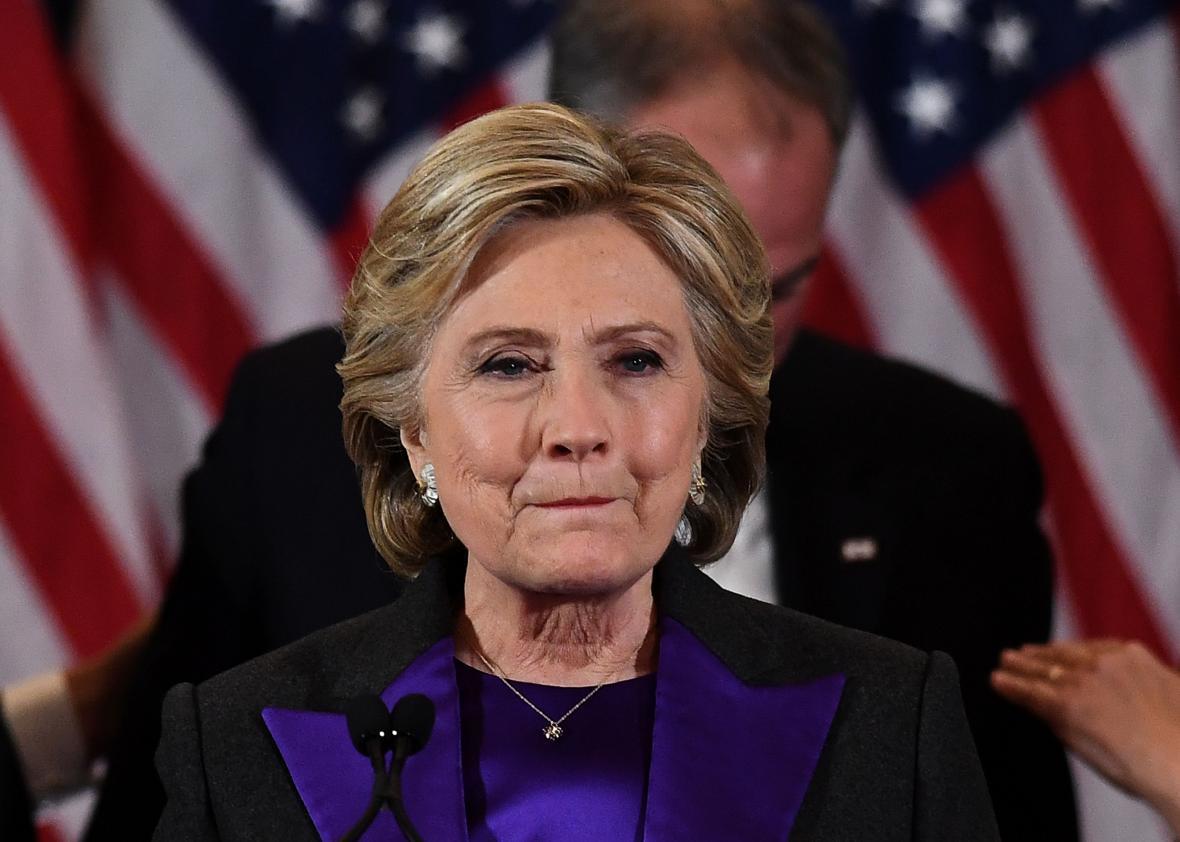You’d have to be a pretty cold person not to have been moved by Hillary Clinton’s gracious concession speech late Wednesday morning. It was a speech that very few people imagined she would ever have to deliver. And yet she was able to address the pain she felt while calling for her supporters to fight another day:
I’ve had successes and I’ve had setbacks. Sometimes, really painful ones. Many of you are at the beginning of your professional public and political careers. You will have successes and setbacks, too. This loss hurts, but please never stop believing that fighting for what’s right is worth it.
Heartfelt and true as that part of her speech was, it hints at something that might have been one of Clinton’s more critical flaws, more so than any particular policy stance: She has been around. And around. And around. She’s been a central figure in the Democratic Party since 1992. It was supposed to be her turn in 2008, but she lost to Obama. This year was definitely, absolutely, 100 percent her turn.
Maybe now the Democrats will learn what it took the Republicans a few election cycles to learn themselves: Deferring to a person’s “turn” is a terrible strategy for picking a nominee and running a general election campaign.
I’m thinking back to 1996, when the GOP nominated 73-year-old World War II hero Bob Dole to run against the popular incumbent Bill Clinton. By that point Dole had served in the House or Senate for a combined 35 years. It was his turn. Clinton won the Electoral College vote 379–159 and the popular vote by 8 million.
Then came 2008, when 72-year-old Vietnam War hero John McCain, in his fourth Senate term, ran against Obama. It is likely that any Republican would have lost to Obama, but McCain couldn’t even make it close.
And just because conservatives are stubborn and resistant to change, we ran Mitt Romney—who was not a war hero but who was a 2008 runner-up—in 2012. Some of the shine had worn off Obama by that point, thanks to a slow economic recovery and a rocky Obamacare rollout. Romney had a real chance, and yet he couldn’t win over the white working class in the Rust Belt and lost to Obama.
Clinton had certainly earned the right to run—her hard-fought battle against Obama in 2008, her tenures as a senator and secretary of state, and, yes, her time as first lady, all prepared her for this race. And many of her backers and supporters wanted desperately for it to be her turn because, dammit, it was time to have a woman in the Oval Office. Unfortunately, the enthusiasm that she generated by threatening to shatter that glass ceiling was tempered by the fact that she’d failed in 2008, that she’d been dogged by scandal for so long, and that she was, despite her gender, seen as the establishment personified.
If any of our past three presidents had something in common, it was that they generated real enthusiasm. The Boy from Hope was a refreshing antidote to 12 years of Reagan and Bush. Eight years later, laugh if you want, but, yes, Republicans were truly excited about Bush. And of course Obama gave the United States not just an opportunity to make history but a charismatic history-maker to rally around.
Clinton was the most establishment candidate possible when the electorate was looking for someone to buck Washington. You can point to as many stats as you want that show the economy is doing well, that Obama is popular, that there shouldn’t be so much hatred of Washington. And yet voters are motivated by feelings.
The proof is in the turnout. Yes, Hillary Clinton is winning the popular vote, but she will fall far short of Obama’s 65.4 million votes. It may have been her turn, but the enthusiasm just wasn’t there. It certainly wasn’t Donald Trump’s turn, and you know how that story ends.
